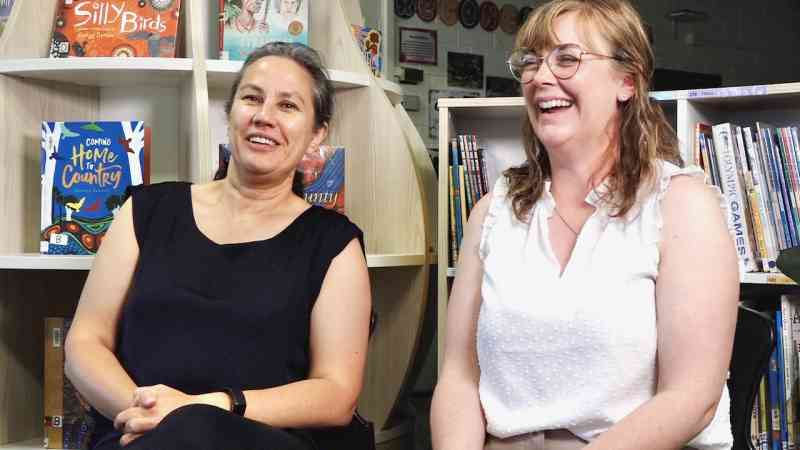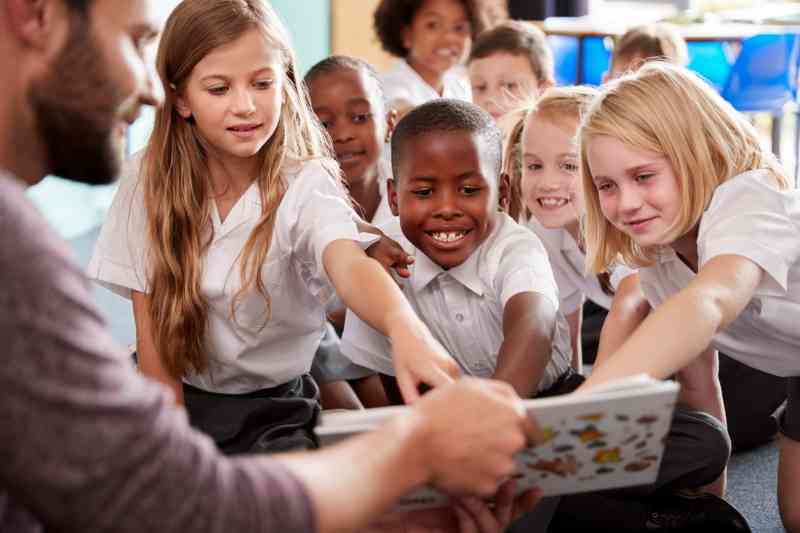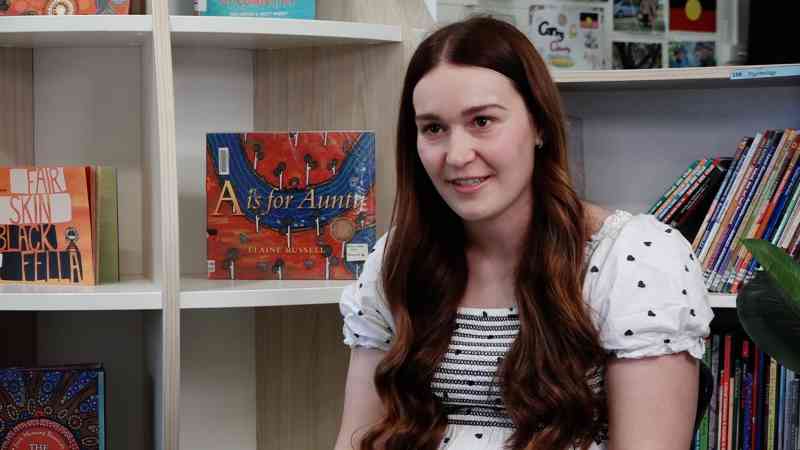-
Part 6: Celebrating Growth in Literacy

Posted by Sharon Callen
Team Teaching Success at Mt Barker South Primary School What happens when two passionate Year 5/6 teachers join forces to create a truly integrated literacy programme? At Mt Barker South Primary School in South Australia, Renee Saldhana and Ra Te Whare have discovered the transformative power of collaborative teaching that...
-
Building Literacy Foundations: Essential Strategies for the Modern Classroom

Posted by Sharon Callen
Transformative approaches for creating vibrant literacy environments that empower students and foster lifelong learning habits As teachers, we understand the importance of setting the tone for a productive, inspiring school year. Creating a literacy-rich environment isn't just about the aesthetics of your classroom—it's about equipping students with the strategies and...
-
Mastering NAPLAN: The Authentic Way

Posted by Sharon Callen
As educators, we often grapple with the challenge of preparing students for standardised tests while maintaining authentic teaching practices. Sharon Callen's insights on NAPLAN preparation offer a refreshing perspective that aligns test readiness with excellent teaching practices. Here's how we can transform NAPLAN preparation from a source of stress to...
-
Part 2: Celebrating Growth in Literacy

Posted by Sharon Callen
Starting a Literacy Journey: Jess Kneebone and Sharon Callen Reflect on Growth in Literacy Teaching Five years ago, a young teacher named Jess Kneebone began her teaching career fresh out of university. It was during her first year at Mount Barker South Primary School in Adelaide that she joined an...
-
Part 2: The Essential Classroom Setup in 2025

Posted by Sharon Callen
By Sharon Callen As teachers, we constantly seek ways to improve the learning environment for our students, making literacy engaging and effective. This blog, inspired by my latest podcast episode, brings together ideas to set up your classroom for success in 2025. Whether you're a seasoned teacher or just starting...
-
Part 1: The Essential Classroom Setup in 2025

Posted by Sharon Callen
By Sharon Callen As teachers, we understand the importance of setting the tone for a productive, inspiring school year. Creating a literacy-rich environment isn't just about the aesthetics of your classroom—it's about equipping students with the strategies/ tools they need to explore, create, and grow. In this blog, I'll introduce...
-
Part 3: The Importance of Teaching Comprehension, F-2

Posted by Diane Snowball
Teaching Comprehension in the Early Years: A Practical Guide for Educators In the foundational years, teaching comprehension is one of the most impactful ways to foster confident, engaged readers. This narrative, inspired by insights from Diane Snowball, offers practical strategies to help teachers cultivate comprehension skills in their classrooms. From...
-
Part 2: The Importance of Teaching Comprehension, F-2

Posted by Diane Snowball
The Importance of Teaching Comprehension in Foundation to Year 2: Insights from Diane Snowball Teaching comprehension in the early years lays the foundation for lifelong literacy. Diane Snowball's recent podcast offers a wealth of wisdom on how teachers can seamlessly integrate decoding and comprehension to empower their youngest learners. Let's...
-
Part 1: The Importance of Teaching Comprehension, F-2

Posted by Diane Snowball
Teaching Comprehension in the Early Years – A Conversation with Diane Snowball In the world of early literacy, comprehension often takes a back seat to the foundational skills of phonics and decoding. However, as literacy expert Diane Snowball passionately argues, comprehension is the heart and soul of reading. Without understanding,...
-
Part 3: Blessing the Book with Sharon Callen

Posted by Sharon Callen
Blessing the Book: Nurturing Readers through Stories In part three of the podcast series, Sharon Callen invites teachers to explore the magic of children's literature, emphasising the idea of "blessing the book." This concept goes beyond simply reading aloud; it is about honouring the story, respecting the author's craft, and...
-
Part 4: Blessing the Book with Sharon Callen

Posted by Sharon Callen
Blessing the Book: Exploring Picture Books with Sharon Callen – Part 4 Picture books hold a special place in a child's life, offering them a chance to explore the world, their emotions, and the complexities of life through art and words. In the fourth part of her podcast series, Sharon...
-
Part 2: Blessing the Book with Sharon Callen

Posted by Sharon Callen
Blessing the Book: A Framework for Building Student Engagement In this blog, we delve into how teachers can foster reading engagement in the classroom. Drawing from research by experts like Linda Gambrell and strategies shared by Sharon Callen, this framework emphasises the importance of actively teaching engagement alongside reading skills....
-
Part 1: Blessing the Book with Sharon Callen

Posted by Sharon Callen
Motivating Young Readers: Unlocking the Joy and Purpose of Reading One of the most common challenges teachers face is ensuring that students not only read but also understand and enjoy what they are reading. Many children can decode words and pass reading tests, but are they truly engaging with the...
-
Part 1: Student Agency with Lisa Burman

Posted by Sharon Callen
In the ever-evolving field of education, the role of both teachers and students has come under increasing scrutiny. How do we, as educators, best foster environments where children take charge of their learning? Lisa Burman, a respected literacy consultant and author, offers deep insights into the topic of student agency....
-
Part 4: Teaching Reading in the First Year of School

Posted by Diane Snowball
In the fourth part of our podcast series 'Teaching Reading in the First Year of School', we delve into the complexities of teaching reading in the first year of school. This discussion aims to debunk the simplistic media narrative that categorises teachers into two groups: those who teach phonics explicitly...
-
Part 3: Teaching Reading in the First Year of School: A Comprehensive Approach

Posted by Diane Snowball
Understanding how to teach reading effectively in the first year of school is crucial for educators. This narrative, based on insights from experienced educators Di and Phil, explores the multi-faceted approach needed to develop young readers' skills comprehensively. Balancing Phonemic Awareness and Comprehension In many schools, there is an overemphasis...
-
Part 2: Teaching Reading in the First Year of School: Developing Deep Language Skills

Posted by Diane Snowball
The Importance of Reading Aloud in Early Education In the journey of teaching children to read, especially in their first year of school, the role of reading aloud cannot be overstated. Expert literacy educator Diane Snowball emphasises that developing a robust vocabulary and a strong understanding of grammar and language...
-
Part 1: Teaching Reading in the First Year of School: A Comprehensive Guide for Teachers

Posted by Diane Snowball
Introduction: The Importance of a Comprehensive Curriculum In the first year of school, teaching reading is a foundational task that requires a well-rounded and thorough approach. Diane Snowball, a literacy expert, outlines a comprehensive curriculum that addresses various aspects of reading education. This curriculum includes concepts of print, phonological awareness,...
-
Part 1: Invitation to New Books with Genevieve Kruyssen

Posted by Sharon Callen
Genevieve Kruyssen from Brisbane's beloved bookshop, Where the Wild Things Are, recently joined a podcast to discuss a curated selection of children's books. From picture books to middle-grade novels, her recommendations promise to captivate young readers and fill gaps in existing libraries. This blog highlights key points from the discussion,...
-
Part 2: Invitation to New Books with Genevieve Kruyssen

Posted by Sharon Callen
In the latest episode of our podcast, 'Invitation to New Books,' Genevieve Kruyssen, a passionate advocate for children's literature, shares her excitement about new books that captivate young readers. From enchanting tales of adventure to heartwarming stories of friendship, Genevieve offers valuable insights for teachers looking to inspire their students...
-
Part 6: High Impact Strategies for Struggling Readers, Years 3 to 6 - Reading Aloud (2)

Posted by Sharon Callen
Reading aloud in the classroom is a simple yet incredibly effective tool for fostering literacy among students, particularly those who struggle with reading. This blog post, based on a podcast discussion (part 2), delves into various aspects of reading aloud and provides practical advice for teachers of students in Years...
-
Part 7: High Impact Strategies for Struggling Readers, Years 3 to 6 - Paired Reading

Posted by Sharon Callen
In the latest episode of "High Impact Strategies for Struggling Readers, Years 3 to 6," Sharon introduces a proven technique to support struggling readers called Paired Reading. This approach, developed by researcher Keith Topping, offers a structured yet flexible way to enhance reading skills through one-on-one interactions. Here's a detailed...
-
Part 5: High Impact Strategies for Struggling Readers: Years 3 to 6 – Reading Aloud

Posted by Sharon Callen
In part five of the podcast series on high-impact strategies for struggling readers in grades 3-6, Sharon and Phil explore the power of reading aloud. They discuss how reading aloud enhances fluency, comprehension, and vocabulary, supported by research from organisations like ALEA and the International Literacy Association. They emphasise the...
-
Part 4: High Impact Strategies for Struggling Readers, Years 3 to 6 - Effective Book Selection (2)

Posted by Sharon Callen
Welcome back to the fourth part of our podcast series on supporting struggling readers in Years 3 to 6. In this episode, we delve into high-impact strategies that teachers can employ to foster student agency and success in reading. From selecting just-right books to implementing innovative techniques like the language...
-
Part 3: High Impact Strategies for Struggling Readers, Years 3 to 6 - Effective Book Selection

Posted by Sharon Callen
Welcome back to the third instalment of our podcast series on high-impact strategies for struggling readers, focusing on students in grades three to six. In this episode, we delve into the crucial aspect of book selection strategies aimed at enhancing the reading experience and fostering literacy development among young learners....
Archive
- December 2024
- November 2024
- October 2024
- September 2024
- August 2024
- July 2024
- June 2024
- May 2024
- April 2024
- March 2024
- February 2024
- January 2024
- December 2023
- November 2023
- October 2023
- September 2023
- August 2023
- July 2023
- June 2023
- May 2023
- April 2023
- March 2023
- December 2022
- November 2022
- October 2022
- September 2022
- August 2022
- July 2022
- June 2022
- May 2022
- January 2022
- July 2021
- June 2021
- May 2021
- March 2021
- October 2020
- July 2020
- April 2020
- January 2020
- November 2019
- May 2019
- April 2019
- March 2019
- February 2019
- July 2018
- April 2018
- March 2018
- January 2018
